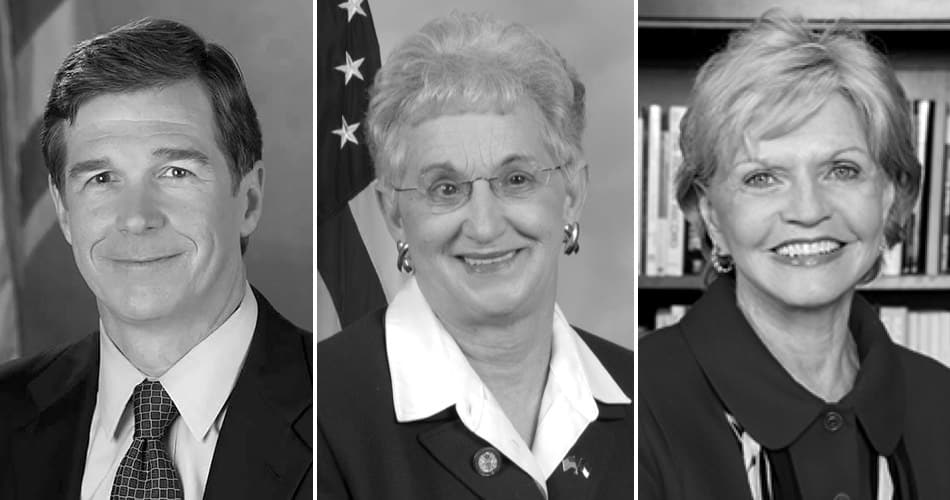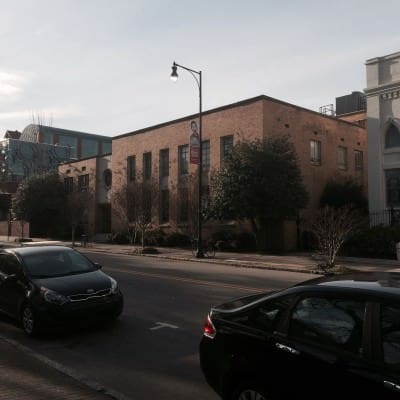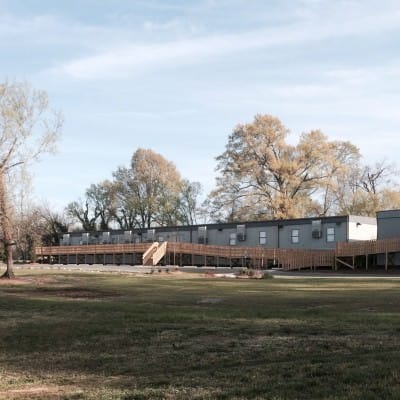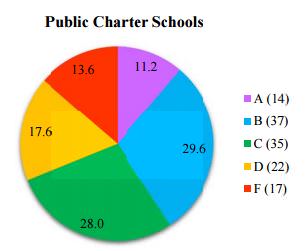
What do these policymakers have in common? They voted for charter schools back in 1996: then-Senators Roy Cooper (D-Nash) now the state Attorney General, Virginia Foxx (R-Watauga) now representing the 5th district in the U.S. House, and former Governor Bev Perdue (D-Craven).
Twenty years ago on April 12, 1995, House Bill 955 — A BILL TO BE ENTITLED AN ACT TO INCREASE EDUCATIONAL OPPORTUNITY BY AUTHORIZING THE CREATION AND FUNDING OF CHARTER SCHOOLS, WHICH ARE DEREGULATED SCHOOLS UNDER PUBLIC CONTROL — was filed. Representative Steve Wood (R-Guilford) was the primary sponsor. House Bill 955 was ratified on June 21, 1996, becoming N.C. Session Law 1995-731.
Across North Carolina, 148 charter schools now serve more than 64,000 students. Sixteen new charter schools are scheduled to open in August 2015.
As we head into the 20th anniversary of charter schools in North Carolina, EdNC will be taking a look at charters across our state. We plan to look around too — from Arizona to Colorado, from New Orleans to Philadelphia. We’ll be thinking about how to connect our 20 years of experience with charters to their future in our mix of public school offerings.
For today, a look back.
Minnesota led the way opening the first charter schools in 1991. According to the Center for Education Reform, “Today in the U.S. there are 2.9 million students being served by over 6,700 charter schools across 42 states and the District of Columbia.” The eight states without charter schools include Alabama, Kentucky, Montana, Nebraska, North Dakota, South Dakota, Vermont, and West Virginia.
After House Bill 955 passed in 1996, just 34 charter schools opened in North Carolina for the 1997-98 school year. Of those, 18 are still open: Arapahoe Charter, Bridges Academy, CIS Academy, Chatham Charter, Exploris School, Francine Delany New School for Children, Grandfather Academy, Healthy Start Academy Charter, Magellan Charter, Maureen Joy Charter, Quality Education Academy, Rocky Mount Preparatory, Sallie B. Howard, Sterling Montessori Academy, Summit Charter, The Carter G. Woodson School of Challenge, The Children’s Village Academy, and The Community Charter School.
Former Governor Perdue says, “Twenty years ago the discussion about charter schools in North Carolina — state funded, non-traditional public schools set free from rules and bureaucracy — was very controversial. The idea of experimentation with state funding for a different kind of education or differently purposed schools aimed at specific populations was heresy.”
In the 1995-96 session when House Bill 955 passed, the makeup of the House of Representatives was 68 Republicans and 52 Democrats, and the Senate was 26 Democrats and 24 Republicans. The Speaker of the House was Harold Brubaker (R-Randolph), and the President Pro Tempore of the Senate was Marc Basnight (D-Dare).
A window of opportunity to enact charter legislation existed because Republicans controlled the House for the first time since the 1800s and, according to a doctoral dissertation by Wayne Lewis, “[s]chool choice advocates had effectively placed the traditional education establishment between a rock and a hard place by threatening to continue to press for tuition tax credits and vouchers for private schools if charter schools were not accepted.”
The bill was ratified with bipartisan support. The conference committee report was adopted by the House 78-25 and by the Senate 37-8.
In addition to Cooper, Foxx, and Perdue, both Brubaker and Basnight voted for the bill.
Senator Fletcher Hartsell (R-Cabarrus), who has served in the legislature since 1991, voted for the bill too, and he remembers working with then-Senators Leslie Winner (D-Mecklenburg), Wib Gulley (D-Durham), and Clark Plexico (D-Henderson). “We thought it would be a useful experiment to try,” he says.
Five of seven black Senators voted against House Bill 955. Eleven of 17 black Representatives voted against the bill. One Republican voted against the bill: Representative Joe Kiser (R-Lincoln).
The purpose of charter schools is spelled out for us in the legislation, now codified at N.C. General Statute § 115C-218:
- Improve student learning;
- Increase learning opportunities for all students, with special emphasis on expanded learning experiences for students who are identified as at risk of academic failure or academically gifted;
- Encourage the use of different and innovative teaching methods;
- Create new professional opportunities for teachers, including the opportunities to be responsible for the learning program at the school site;
- Provide parents and students with expanded choices in the types of educational opportunities that are available within the public school system; and
- Hold the schools established under this Part accountable for meeting measurable student achievement results, and provide the schools with a method to change from rule-based to performance-based accountability systems.
The nonpartisan N.C. Center for Public Policy Research released reports on charter schools in July 2002 and July 2007. The Center reports highlight concerns that need to be considered as the market share of charters in our state increases: monitoring the academic performance of students in charters, especially where charters lag traditional public school performance; the diversity of charter school students; and how to best structure the state oversight of charters, especially with regards to financial management.
When the school letter grades were released earlier this year, here is how charter schools did:
Perdue says, “Now, 20 years later, the cap on the numbers of charter schools has been lifted and the rhetoric has cooled. However, the quality of the schools — the education outcomes for kids — is still powerful. We want our public schools to educate all our kids and we want that education to be excellent. So charter outcomes still matter and low performing ones need to be closed.”
House Bill 955 capped the number of charters statewide to 100. In 2011, Senate Bill 8 — AN ACT TO REMOVE THE CAP ON CHARTER SCHOOLS — was ratified. The conference committee report was adopted by the House 108-5 and by the Senate 45-0. Governor Perdue signed the bill into law.
Hartsell says there is always value in looking back, and he thinks the state can learn as much from the mistakes as the successes. For example, he says, “I think there is a certain disappointment at the lack of the use of the laboratory,” referring to the laboratory function some expected charters to play in innovating for public schools. Looking back, he says, “I really think the schools of education should have started charters aligned with them so they could have done some experimentation.”
With the 20th anniversary of charters just ahead, it is time for us as a state to identify charter innovations and think about how to scale them to our public school setting to drive change.
And we need to wrestle with what happens with low performing charter and traditional public schools.
When EdNC visited KIPP in Gaston, a college preparatory charter school, Tammi Sutton, the executive director, said, “Is it hard to educate kids in poverty? Yes. So what? Let’s do it. … Changing education is going to change the poverty in our community.”
We are headed back up to KIPP:Gaston in May to learn more about the connection between how resources are invested in students (more money for teachers, a school-based health clinic, but no textbooks or devices, for example) and the relationship to student outcomes. The school received a B – 65 percent on achievement and 92.8 percent on growth. For the last seven years, all of the students have been accepted to college. Which outcomes matter most to you?
As we think about and learn from our experience with charters, Hartsell notes,
“We allowed the system to control change versus change making the system better.”
Let’s change that going forward. If you know of a charter school you want EdNC to visit, please let us know.
Editor’s Note: I formerly worked at the N.C. Center for Public Policy Research.






